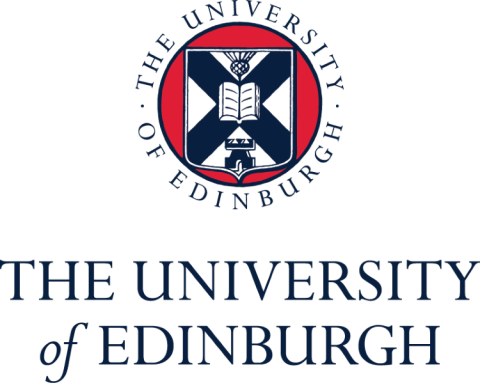
From personal to professional: incorporating sustainability into your university work
Practical advice for embedding sustainability issues into broader professional practice, taking lessons from teaching English language that are applicable across other disciplines
Embedding the Sustainable Development Goals (SDGs) more formally into university curricula allows students to build on knowledge that they leave school with and apply it to their degree programmes in novel and innovative ways. I will describe here how I have started to incorporate the SDGs into my teaching of English for academic purposes in the context of my own sustainability “journey” at the University of Edinburgh.
My sustainability ‘journey’
Over the past five years, I have tried to turn a personal interest in sustainability into something more formal. This started when I became aware of the university’s department for social responsibility and sustainability (SRS) through an Introduction to Sustainability course for staff. Through SRS, I became a sustrans active travel champion, which involved promoting sustainable travel initiatives and helping out at events. Sustrans also supports new ideas and initiatives relating to sustainability and travel. This led to greater awareness of events happening in the area as well as access to funded courses, such as the Cycle Leader and Jog Leader awards, which support participants to start up clubs and groups related to physical activity with more knowledge and support. These courses gave me the confidence to start a lunchtime jogging group in 2018, which introduced some students to jogging for the first time. I then organised a Friday-morning coffee meet-up for colleagues, which is ongoing.
- Resource collection: How universities can work towards the SDGs
- Supporting student action on sustainability
- Resource collection: Universities’ role in the climate change battle
Sustainability and English for academic purposes
Two of my goals have been to embed the SDGs more explicitly into my teaching, and to make students and colleagues appreciate that there is much more to sustainability than recycling. My work principally involves teaching English for academic purposes (EAP) to students whose first language is not English. Many of my students have not heard of the SDGs and are unaware of issues such as recycling and climate change because they are not in the public eye or conscience in their home countries. To build awareness of these issues, I set essays on topics such as population growth, the impact of meat consumption on climate change, and plastic pollution. This encourages students to consider current and relevant issues, select appropriate source material, and describe and evaluate potential solutions, with each stage developing critical thinking and academic skills through a sustainability “lens”.
As part of the online pivot in March 2020, we used an e-book called Develop EAP: A Sustainable Academic English Skills Course. As well as developing students’ academic and soft skills, it uses the SDGs to frame the topics and issues and encourages students to think about what it means to be a global citizen. Feedback from students and tutors was positive and the final presentations, essays and reflections were interesting and enlightening. For their final presentation, each student selected an SDG and created a short presentation that summarised the chosen goal, justified their choice and analysed the extent to which the targets could be achieved in their own countries or home universities.
A renewed enthusiasm for sustainability projects
With students and staff back on campus, there is a renewed desire to get projects off the ground, particularly regarding community building and engagement. There have been discussions about community bulb-planting, biodiversity walks and e-bike lunchtime rides. I hope to arrange sustainability and carbon literacy training sessions for staff and students to raise awareness of issues such as climate change, plastic pollution, active travel and responsible consumption.
Four ‘take home’ pieces of advice
Based on my experience of incorporating sustainability work into my professional practice, I would highlight four points:
- You cannot realistically become an expert in every SDG and nobody would expect you to. Therefore, think about the goals that interest you most on a personal level and on a professional level. Any that overlap would be a good place to initially focus your attention. You are likely to have more impact talking to colleagues, students and managers about something you feel personally invested in.
- Find out if your place of work has a dedicated sustainability department or individual. See if there are any courses you can complete, preferably free but if not, see if funding is available. Examples of courses I have completed include (but are not limited to) those on FutureLearn, EdX, Coursera and the Ellen MacArthur Foundation. I also found useful resources provided by WWF, Learning for Sustainability Scotland and Zero Waste Scotland.
- Speak to your line manager about your interests. I am fortunate to have a manager who actively encourages me to get involved. If they are not on board initially, then persevere. For the first two or three years, I just did things anyway, but it was a boost when it was recognised and I was eventually allocated time for it. Just stick at it. Last year, goals related to sustainability were included in my annual appraisal for the first time – five years into my sustainability journey.
- Find things happening at your place of work relating to sustainability such as talks and conferences. Sign up for local sustainability newsletters. Be enthusiastic about things but keep your enthusiasm focused where possible. I found that many of these “extra” activities could be worked into my job commitments in some way (for example, in providing discussion prompts), and the voluntary nature of it made it easy to step back if I felt it was impacting negatively on my work.
Hopefully this advice will inspire you to incorporate your personal interests in sustainability into your professional practice and inspire others to engage more with these important issues.
Peter Buckley is English for academic purposes teaching fellow at the University of Edinburgh.
If you would like advice and insight from academics and university staff delivered direct to your inbox each week, sign up for the Campus newsletter.




